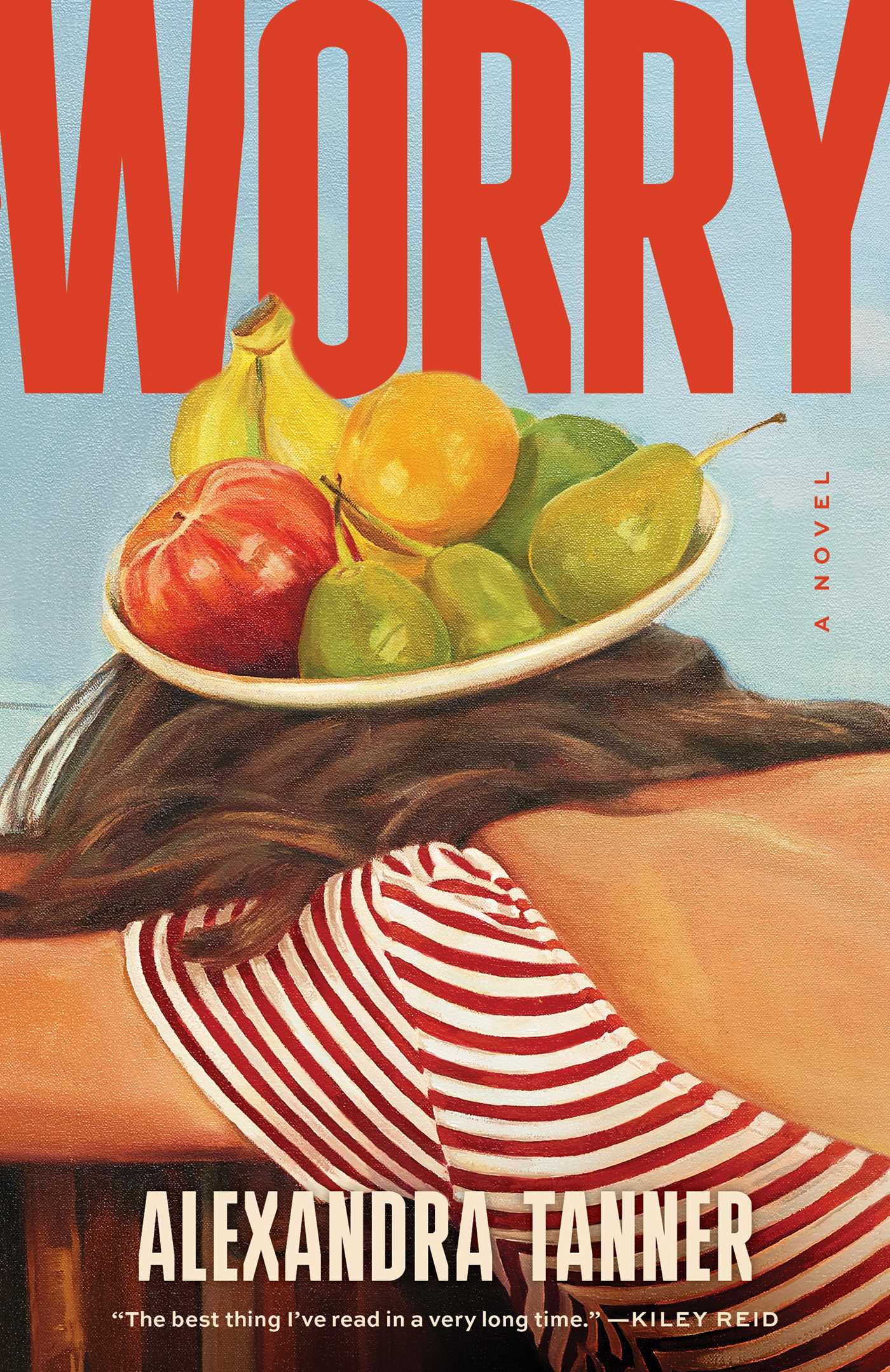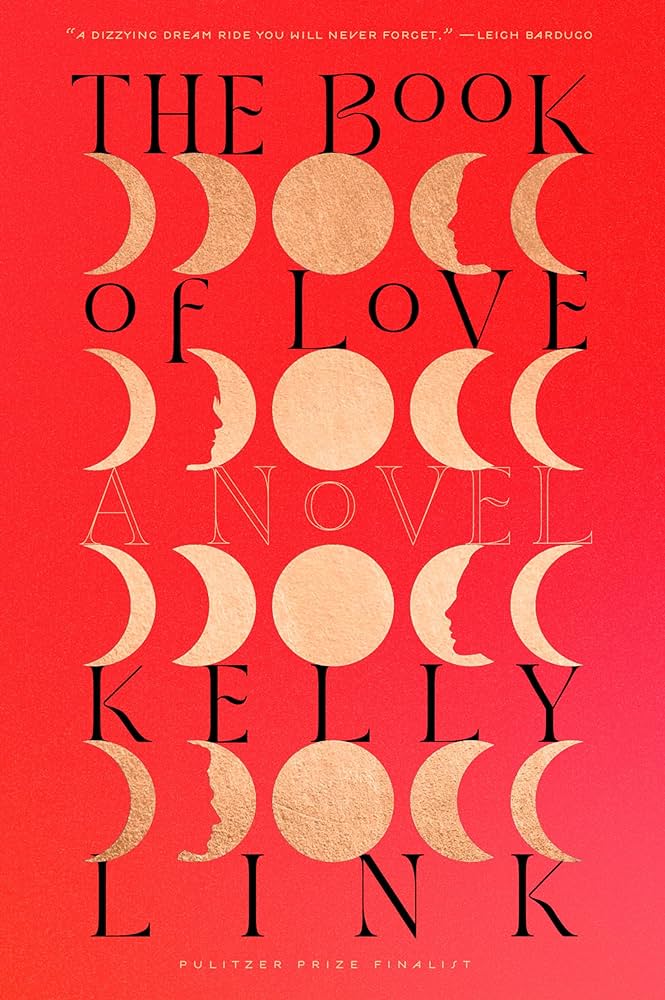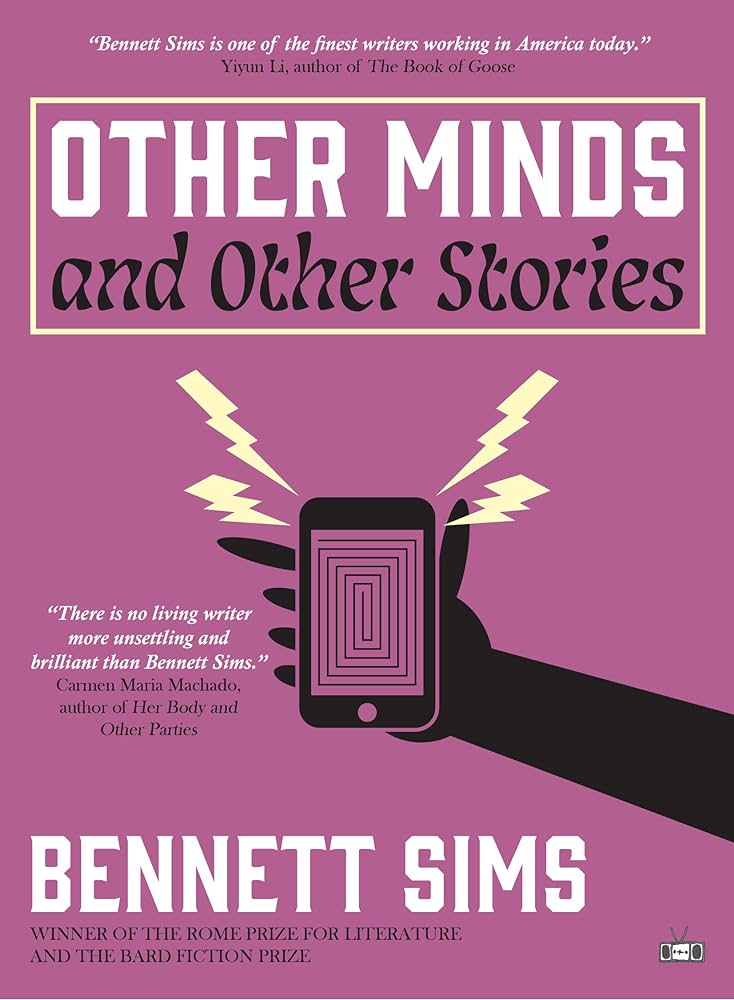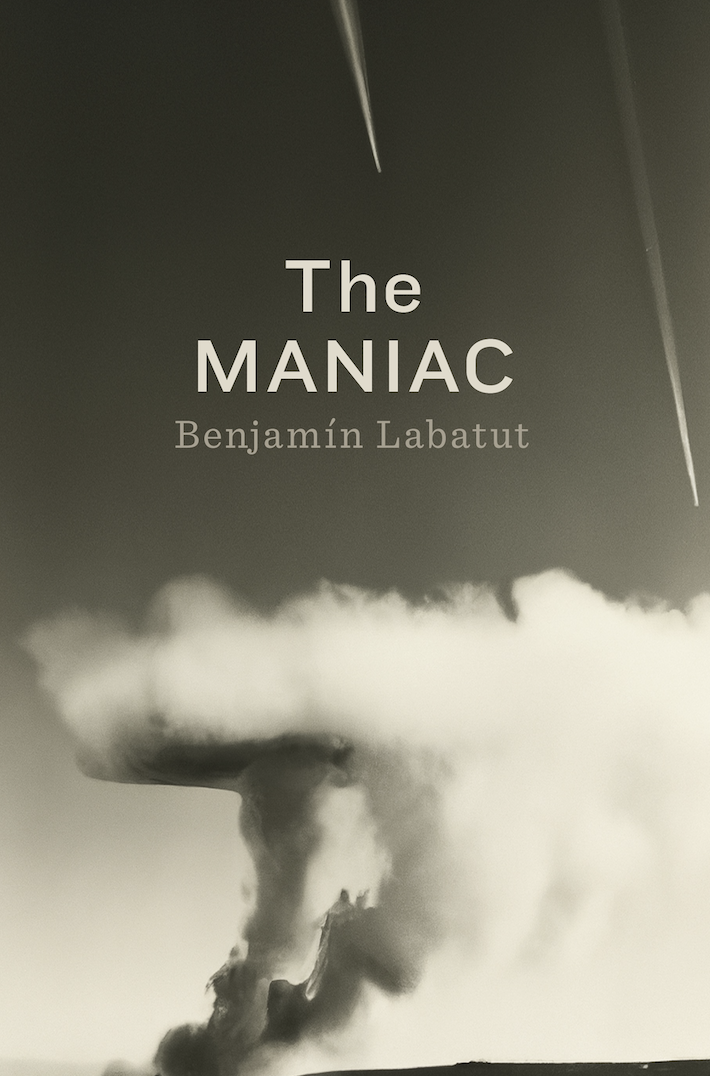1.
 Maria Dolz sees the same couple at the same café in the same city, Madrid, nearly every morning. “[T]he sight of them together” calmed her, and provided her “with a vision of an orderly or, if you prefer, harmonious world.” Maria works for a book publisher, where she often must deal with vain and pretentious authors — including one who is so infatuated with the Nobel Prize that he has already prepared an acceptance speech in Swedish. She is somewhere just south of 40, and has not married. To her, the couple was the ideal form of love, a couple who unselfconsciously enjoyed every second in each other’s presence. “[I] didn’t regard them with envy, not at all,” Maria says, “but with a feeling of relief that in the real world there could exist what I believed to be a perfect couple.”
Maria Dolz sees the same couple at the same café in the same city, Madrid, nearly every morning. “[T]he sight of them together” calmed her, and provided her “with a vision of an orderly or, if you prefer, harmonious world.” Maria works for a book publisher, where she often must deal with vain and pretentious authors — including one who is so infatuated with the Nobel Prize that he has already prepared an acceptance speech in Swedish. She is somewhere just south of 40, and has not married. To her, the couple was the ideal form of love, a couple who unselfconsciously enjoyed every second in each other’s presence. “[I] didn’t regard them with envy, not at all,” Maria says, “but with a feeling of relief that in the real world there could exist what I believed to be a perfect couple.”
But then the husband, Miguel Desvern, is murdered violently by a deranged homeless man, who raves about his daughters’ forced prostitution and wildly accuses Desvern of taking his inheritance. Thus ends the tranquil preprandial café moments — although the murder is less jarring (for Maria) than its aftermath. After another encounter with Miguel’s wife, Luisa, Maria strikes up a small friendship. Maria also begins seeing Javier Diaz-Verela, a friend of the couple’s; their relationship forms the core of Spanish author Javier Marías’s 12th novel, The Infatuations.
If you have been paying attention, you have noticed this is a book by a man named Javier Marías that features a complicated story of Javier and Maria. And if you knew Javier Marías’s work, this type of tongue-in-cheek wordplay would not be surprising: While The Infatuations contains strong elements of its author’s biography — Marías’s own life is often a motif in his fiction — it is not autobiographical. His novels “dare us — subtly here, grandly there — to mistake the narrator for the author himself,” Wyatt Mason has written. “Marías seems to be saying, what we believe — and what is believed about us — is where the trouble begins.”
As The Infatuations opens, Maria Dolz believes, it seems, in love — or “true love,” as the way we often refer to it — of a “perfect couple.” And that was precisely the start of a catastrophe.
2.
Javier Marías may be the only significant working writer to also be a king. As the sovereign of Redonda (a small, rocky island north of Montserrat and west of Antigua), Marías is the honorary (“void of content,” in his words) monarch. His two-decade reign has nearly entirely consisted of bestowing titles on various artists — John Ashbery is the Duke of Convexo, for example — as part of an effort at tongue-in-cheek recognition.
Marías does not take it seriously, but the title of “king,” in some ways, feels apt. The cover of The Infatuations notes striking praise for the author from heavyweights J.M. Coetzee (“one of the best contemporary European writers”), Roberto Bolaño (“By far Spain’s best writer today”) and Orhan Pamuk (Marías “should get the Nobel Prize”). His books have sold more than 6.5 million copies throughout the world, and have been translated into 42 languages, yet neither my local libraries nor any hometown shop — independent bookstore or Barnes & Noble — carried any of his titles, and even the state university’s large library only had a handful of his books, mostly in Spanish. Marías may be royalty, but in the United States he remains nearly as obscure as Redonda.
 Nearly the moment after Marías’s birth, his father, Julián, a philosopher, moved from Madrid to Massachusetts for a teaching job at Wellesley, while Marías, his mother, and his older brothers moved shortly thereafter. Marías would spend chunks of his childhood in the United States, where his first novel, completed before he turned 21, was set; but he eventually went on to study English at Complutense University in Madrid. After two novels, he turned to translation for a half-dozen years. His work — Spanish versions of Sir Thomas Browne, Laurence Sterne, and William Faulkner, for example — seems to be a guide to his subsequent fiction. For a period he taught translation theory at Oxford, where his novel All Souls takes place. It is difficult to understate how fundamental translation (as a concept) is to reading Marías, and that is perhaps one reason why reading him in English seems almost as fitting as the original Spanish; indeed, his work, in its original language, has been criticized as “sound[ing] like translations,” because, among other things, it lacks much distinct Spanish-ness, no (in Marias’s words) “bullfighting, no passionate women.” To Marias, sounding like a translation was praise, even if it was meant as an insult. “One of the things I didn’t want to be was what they call a ‘real Spanish writer.'”
Nearly the moment after Marías’s birth, his father, Julián, a philosopher, moved from Madrid to Massachusetts for a teaching job at Wellesley, while Marías, his mother, and his older brothers moved shortly thereafter. Marías would spend chunks of his childhood in the United States, where his first novel, completed before he turned 21, was set; but he eventually went on to study English at Complutense University in Madrid. After two novels, he turned to translation for a half-dozen years. His work — Spanish versions of Sir Thomas Browne, Laurence Sterne, and William Faulkner, for example — seems to be a guide to his subsequent fiction. For a period he taught translation theory at Oxford, where his novel All Souls takes place. It is difficult to understate how fundamental translation (as a concept) is to reading Marías, and that is perhaps one reason why reading him in English seems almost as fitting as the original Spanish; indeed, his work, in its original language, has been criticized as “sound[ing] like translations,” because, among other things, it lacks much distinct Spanish-ness, no (in Marias’s words) “bullfighting, no passionate women.” To Marias, sounding like a translation was praise, even if it was meant as an insult. “One of the things I didn’t want to be was what they call a ‘real Spanish writer.'”

 A translator is a “privileged reader and a privileged writer,” Marías has said. “[I]f I ever had my own creative writing school I would only admit people who could translate, and I would make them do it over and over again.” The narrator of A Heart So White is a translator, for example; the narrator of Marías’s Your Face Tomorrow trilogy is an “interpreter of people,” who is asked to establish if a person would lie or kill in the future. Translation is, in typical Marías fashion, an allusion to his biography: the author’s own mother, in fact, was also a translator.
A translator is a “privileged reader and a privileged writer,” Marías has said. “[I]f I ever had my own creative writing school I would only admit people who could translate, and I would make them do it over and over again.” The narrator of A Heart So White is a translator, for example; the narrator of Marías’s Your Face Tomorrow trilogy is an “interpreter of people,” who is asked to establish if a person would lie or kill in the future. Translation is, in typical Marías fashion, an allusion to his biography: the author’s own mother, in fact, was also a translator.
Marías’s other narrators are frequently interpreters by another name, who occupy themselves interpreting and translating, from Juan’s obsessive interpretations of his wife’s small gestures in A Heart So White, to Victor’s ghostwriting in Tomorrow in the Battle Think on Me, to Maria’s attempts at deciphering words not being said by feminine lips of Javier Diaz-Verela in The Infatuations. It is a fundamental human occupation, Marías seems to be conveying, prone to gaps and misses. “[A]ll the valuable information to which people imagine we translators and interpreters working in international organizations are privy,” Juan says, “in fact, escapes us completely, from beginning to end, from top to bottom, we haven’t a clue about what’s brewing or being plotted and planned in the world, not the slightest glimmer.”
As a regular columnist for El Pais, Marías has opined on a huge range of topics. Perhaps having to produce so much copy, and so often, has rendered him to strikingly straightforward and eloquent — in virtually any interview — about his process and his books, although one suspects that Marías possesses such grace naturally. He seems to understand his own writing — which often seems effortless, and never showy — better than anyone. He is a retort to Barthes: the author, in other words, is not dead, but a key to the entire process. “A novel is a more savage and wild thing in the sense that you can say anything, and your narrators or characters can say anything,” Marías has said. “Yet it still arrives at a kind of truth.”
The truth that The Infatuations arrives at, if it does, is a most uncomfortable and perplexing one.
3.
Perhaps the only thing wrong with The Infatuations is its title. In Spanish, it is Los Enamoramientos, which could also be translated as “crushes,” but which is defined in the novel — in a long speech of Javier Diaz-Varela — as the “state of falling or being in love.” Of course, the title is one of the vagaries of translation — how fitting for a Marías novel — since “enamoramiento” cannot be easily translated into English. If, in English, there had been a noun form for “to be enamored with,” perhaps that would have worked best; still, “infatuation” manages well enough.
The book probes what defines the boundary between love and infatuation, and how often both can be on shaky ground. Our lives are “very limited in our choices of partner by location, class, history and who is willing to accept our advances,” Marías said, talking about the novel. “How many times are we not the first choice? Or even the second, or the third?”
This is rather a disturbing notion, after all; many hardened atheists still believe in love or perhaps a version of a soulmate, and most often it seems it’s the religiously devout who remain unmarried. The Infatuations purposefully attempts to suggest imperfect, impure love is more common than is ever spoken. Javier tells Maria that she is not in love with him, as she claims, and that “even the most transient and trivial of infatuations lack any real cause, and that’s even truer of feelings that go far deeper, infinitely deeper than that.” In this way, human affection seems tantamount to human hatred, such as the homeless man’s killing of Miguel: causeless, random, the product of inward self-obsessions instead of the outward direction of the self. (Perhaps that was hinted by “Maria” falling for “Javier,” as they are both just the creations of Javier Marías.)
But maybe this depressing suggestion is just Marias speaking out of both sides of his mouth — what he has called *pensamiento literario*, or “literary thinking,” a way of thinking that lets the writer contradict himself. In The Infatuations, we have the possibility that perhaps life, unlike the novel, is quite a different, more complicated thing, and the jaded notions of manipulations and cynicism apparent to Maria are simply products of her bitter worldview: “…no novel would ever dare give houseroom to the infinite number of chances and coincidences that can occur in a single lifetime,” Maria thinks at one point, “let alone those that have already occurred and continue to occur. It’s quite shameful the way reality imposes no limits on itself.” It’s shameful to Maria, but perhaps it is hopeful for the rest of us.
 Beyond the interesting ideas his work draws on, Marías’s novels are simply a pleasure to read — they possess the sort of flat, hypnotic quality of the prose of W.G. Sebald, who, along with Marías, can make anything seem interesting. Marias’s sentences — like Sebald’s — are long, and feature lots of commas, where thoughts appear and pop up and then disappear, building and strengthening, and often the sentences contains strings of complex and compound ideas, much like this sentence, as the author burrows further and further into particular moments, stretching them out for pages. His novels contain what Marías calls “a system of echoes or resonances,” or ideas, motifs, details, which the story keeps revisiting. Sometimes these are literary touchstones — in The Infatuations, Maria keeps coming back to bits of Balzac and Dumas, while in A Heart So White it is Macbeth — and other times they are bits of distinct dialogue or details (such as Diaz-Verela’s feminine lips). Perhaps because Marias does not outline his novels, these important “reoccurrences” feel organic. If there is a Chekhov’s gun, it was in the first draft.
Beyond the interesting ideas his work draws on, Marías’s novels are simply a pleasure to read — they possess the sort of flat, hypnotic quality of the prose of W.G. Sebald, who, along with Marías, can make anything seem interesting. Marias’s sentences — like Sebald’s — are long, and feature lots of commas, where thoughts appear and pop up and then disappear, building and strengthening, and often the sentences contains strings of complex and compound ideas, much like this sentence, as the author burrows further and further into particular moments, stretching them out for pages. His novels contain what Marías calls “a system of echoes or resonances,” or ideas, motifs, details, which the story keeps revisiting. Sometimes these are literary touchstones — in The Infatuations, Maria keeps coming back to bits of Balzac and Dumas, while in A Heart So White it is Macbeth — and other times they are bits of distinct dialogue or details (such as Diaz-Verela’s feminine lips). Perhaps because Marias does not outline his novels, these important “reoccurrences” feel organic. If there is a Chekhov’s gun, it was in the first draft.
Throughout the course of The Infatuations, Maria learns too much about Javier Diaz-Verela, too much about Luisa, too much about Miguel. The love of Luisa and Miguel, that perfect couple, is replaced with another kind of love — to say more would spoil it — that seems no less dedicated, if significantly less pure. There hardly exists, at the end of the novel, a “perfect couple,” but perhaps that feels more real. It is precisely these quandaries, contradictions, and realities that makes Marías’s fiction so good; The Infatuations, containing the qualities of Marías’s best work, is an important addition to his oeuvre.
Literature, Marías has said, “doesn’t properly illuminate things, but like the match it lets you see how much darkness there is.” The Infatuations leaves us with the unsettling possibility that the darkness is deep indeed.













